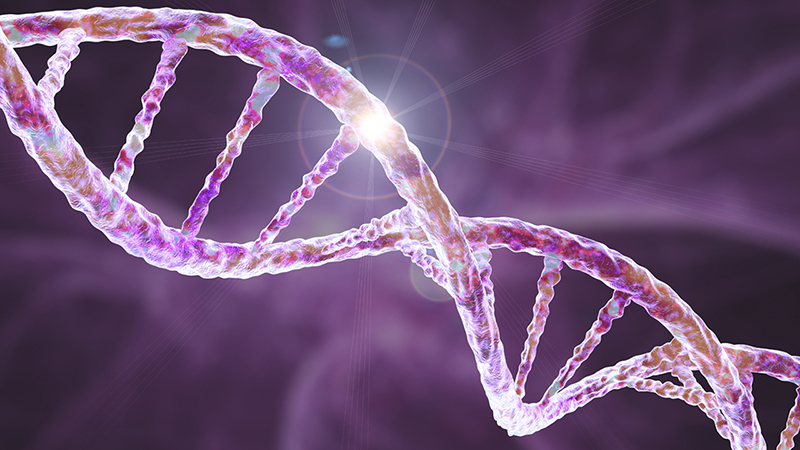Does Alcohol Cause Cancer?
The Link Between Alcohol and Cancer
Published February 2025
The effects of alcohol on your body extend beyond the next-day hangover.
An advisory from the U.S. Surgeon General shows that drinking alcohol can cause cancer. Each year, nearly 100,000 cancer cases and about 20,000 cancer deaths in the United States are linked to alcohol.
"This is a wake-up call for many of my patients," says Christopher M. George, MD, an oncologist at Northwestern Medicine. "While most people know about the risks of drunk driving or liver disease, less than half of U.S. adults are aware that alcohol can cause cancer."
Understanding Your Cancer Risk From Alcohol
There is no clear ‘safe’ threshold for alcohol consumption.— Christopher M. George, MD
Drinking alcohol has been linked to seven types of cancers:
- Breast cancer in women
- Colorectal cancer
- Esophageal cancer
- Liver cancer
- Mouth cancer
- Throat cancer
- Voice box cancer
"What surprises many people is that even light to moderate drinking of alcohol increases the risk of cancer," explains Dr. George. "For example, alcohol increases risk of breast cancer and head and neck cancer even if you have just one drink per day."
Is There a Safe Limit for Drinking?
Drinking any amount of alcohol can increase cancer risk, and you have a higher risk of getting cancer the more you drink. Even at moderate drinking levels (defined as one drink per day for women, two for men), research shows that women* who have two drinks daily have a 15.3% lifetime risk of breast cancer, compared to 11.3% for those who drink less than one drink per week.
How Does Alcohol Cause Cancer?
Scientists don't yet know exactly how alcohol can cause cancer, but it probably involves some or all of the following:
- When your body breaks down alcohol, it creates a substance called acetaldehyde that can damage your DNA.
- Alcohol causes inflammation and makes harmful molecules called reactive oxygen species, which can also damage your DNA.
- Alcohol can alter hormone levels, particularly estrogen, which may increase breast cancer risk.
- Alcohol makes it easier for your body to absorb other cancer-causing substances, like those in tobacco smoke.
Can You Reverse the Damage From Drinking?
“No matter what your drinking habits have been during your lifetime, it's never too late to make a positive change,” says Dr. George. “While some damage from alcohol can be permanent, some changes are reversible. Reducing or stopping alcohol consumption can possibly help lower your future cancer risk compared to your risk if you continue drinking.”
What About the Health Benefits of Alcohol?
While past studies suggested potential heart health benefits from moderate drinking, particularly drinking red wine, newer research has questioned these findings. Cardiac benefits have been difficult to validate in further studies. Research suggests the risk of cancer and other health problems may outweigh any potential cardiovascular benefits of alcohol.
Does the Type of Alcohol Matter?
"Many patients ask whether certain types of alcohol are safer than others," explains Dr. George. "The evidence shows that all types of alcoholic beverages — beer, wine and spirits — can increase cancer risk. At this time, we cannot say confidently that one type of alcohol is safer than others."
What About ‘Occasional’ or Social Drinking?
While regular drinking poses the highest risk, Dr. George notes that even occasional or social drinking contributes to overall lifetime exposure, increasing cancer risk. "There is no clear 'safe' threshold for alcohol consumption. Even occasional drinking adds up over time, though the risk is lower than with heavy consumption," he says.
Should I Be Worried If I've Been Drinking Regularly for a Long Time?
"It's natural to feel concerned if you've been drinking regularly," acknowledges Dr. George. "The best approach is to focus on what you can control now. Talk to your physician about your personal risk factors and appropriate cancer screenings. Remember, reducing or stopping drinking alcohol at any point is good for your health."
What You Can Do
Dr. George recommends several steps to reduce your alcohol-related cancer risk:
- Be aware of how much you drink.
- Have an honest conversation with your care team about your alcohol consumption and cancer risk.
- Know what counts as one drink: 12 ounces of beer, 5 ounces of wine or 1.5 ounces of liquor.
- Consider alcohol-free alternatives when socializing.
- If you don't currently drink, don't start.
- Consider tracking your drinks using a mobile app or journal to understand your consumption patterns.
- If you're concerned about your drinking habits, speak with your care team about support resources.
- Be extra cautious if you have a family history of cancer.
Learn more about reducing your cancer risk through your diet.
* Scientists do not always collect information from participants about gender identity. To avoid misrepresenting the results of this research, we use the same terminology as the study authors.






